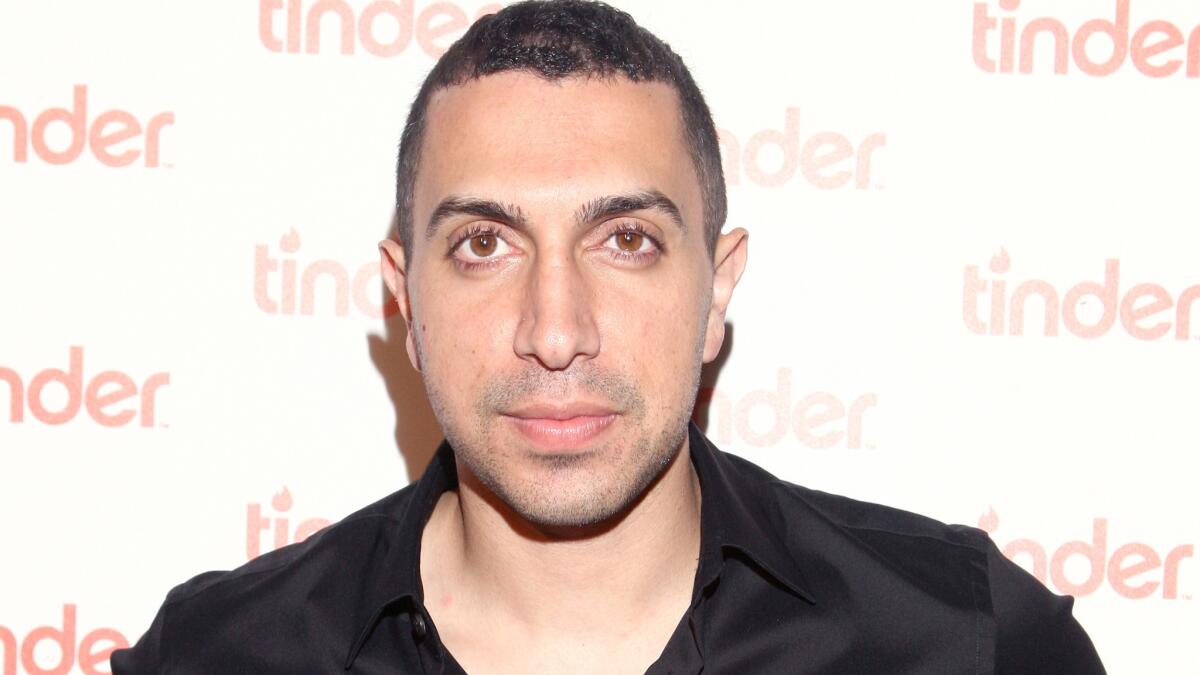Former Tinder CEO Sean Rad accused of secretly recording employees and bosses in new court filing

The multibillion-dollar legal battle between Sean Rad, the co-founder and former chief executive of Tinder, and its parent company, IAC, took a new turn Thursday when IAC alleged in a new court filing that Rad secretly recorded multiple conversations with Tinder employees and his supervisors, potentially violating California law requiring both parties to consent to being recorded.
“These recordings involve a shocking invasion of privacy and a fundamental lack of honestly and business ethics,” IAC’s attorneys wrote in the filing.
Attorneys for Rad responded with a motion to dismiss the amended claim, arguing that the recordings and transfers of company files did not violate the terms of his employment, though some may have violated California law.
The underlying premise of the countersuit — that IAC can sue for damages equal to how much stock compensation Rad received from the date that he began recording people, because IAC would have fired him had it known what he was doing — was called flawed by Rad’s lawyers, who also said the countersuit amounts to retaliation.
“IAC and [dating app subsidiary] Match are showing the world the cost of suing them — they will rummage through your personal emails, make up lies, file frivolous lawsuits and do everything else they can to distract from the actual facts,” Orin Snyder, the lawyer representing Rad and his co-defendants, said in a statement. “Sean and his Tinder colleagues will not be bullied or silenced.”
The ongoing flurry of suits and countersuits surrounding the popular dating app company, which has its headquarters in West Hollywood, began in 2018, when Rad and a number of former Tinder executives sued IAC for $2 billion in damages, alleging that the company and Match Group (which also owns Hinge and OkCupid) intentionally undervalued the company in an effort to avoid paying out billions in stock options to the original Tinder team.
In January, IAC — a holding company led by Barry Diller with a sprawling portfolio of digital properties — filed a countersuit against Rad and his fellow plaintiffs, arguing that he had secretly copied company files and other proprietary information to his personal devices while working at Tinder and that he had deleted files from his work devices and accounts. That countersuit sought $250 million in damages, which IAC said equaled “the portion of the equity compensation Rad received but that he was not entitled to by virtue of his wrongdoing.”
Thursday’s allegations came in an update to that countersuit from IAC.
According to the filing, the discovery process prompted Rad’s team to turn over a number of recordings that showed Rad had been secretly recording “sensitive business conversations” with his superiors and colleagues. The new filing also raised the amount of damages sought to $400 million.
The documents describe recordings of phone conversations between Rad and his immediate boss at the time, former Match CEO Sam Yagan, as well as a recorded conversation between Rad and the then-CEO of IAC, Greg Blatt, without Blatt’s knowledge or consent.
The filing claims that Rad continued to secretly record his conversations with Tinder employees even after leaving the company, including conversations with former Tinder vice president of marketing and communications Rosette Pambakian.
Pambakian is at the center of a separate but linked series of ongoing legal disputes involving former Tinder executives. In a suit filed in August, she alleged that Blatt harassed and assaulted her at a company Christmas party in Beverly Hills in December 2016.
Pambakian was originally part of Rad’s suit against IAC over stock option valuation but withdrew after finding she had signed an arbitration agreement with the company. To add to the complexity of the multiple ongoing suits and countersuits, Pambakian’s separate sexual assault case also alleges that Blatt was protected from disciplinary action in part because he was key to the IAC scheme to lowball the Tinder team.
Blatt, for his part, sued Pambakian and Rad for defamation in October.
Thursday’s update to IAC’s countersuit against Rad comes just weeks after the New York state appeals court denied IAC’s motion to dismiss Rad’s original suit against the company and ruled that Rad’s $2-billion claim could proceed through the courts. A jury trial is set to be scheduled in 2020.







